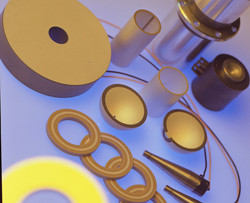Piezoelectronics brought into the mainstream
The European Institute of Piezoelectric Materials and Devices (Piezo Institute) was created by the EU-funded Network of Excellence MIND (Multifunctional and integrated piezoelectric devices). It has gathered expertise in ferroelectricity, electrostriction and pyroelectricity in materials, including ceramics and polymers, from several European countries. Piezoelectric materials can generate an electric charge when stress is applied and change shape when an electric field is applied. With the Piezo Institute, Europe recognised that there is great potential for commercial and industrial applications. These materials enhance healthcare product quality, environmental sensing capabilities and the performance of energy harvesting devices. To achieve this, the EU-funded project PI (The Piezo Institute- European expertise centre for multifunctional and integrated piezoelectric devices) actively engaged the industry. The aim was to identify pathways to the implementation of these technologies and the transition of the Piezo Institute from a not-for-profit organisation to an economically self-sufficient entity. PI partners carried out a pan-European survey that included direct communication with both small and larger businesses that use piezoelectric materials in their products. Based on the findings, a roadmap was produced in 2013, and a year later it was updated with all the materials and technologies of interest to the industrial community. Industry participation at the Piezo Institute's biannual, internationally recognised events was also encouraged. This series of events allowed participants to present their companies and products. On the other hand, the Institute was committed to continuous development of piezo-related skills and offered industrial training in the form of short courses, tutorials and workshops. Since its creation, the Piezo Institute has been offering research and consultancy in materials characterisation and the manufacture and testing of piezoelectric devices. Within the PI project, the Institute has really taken its place in Europe's industrial landscape, helping companies keep up with the rapid pace of piezoelectrics development.



